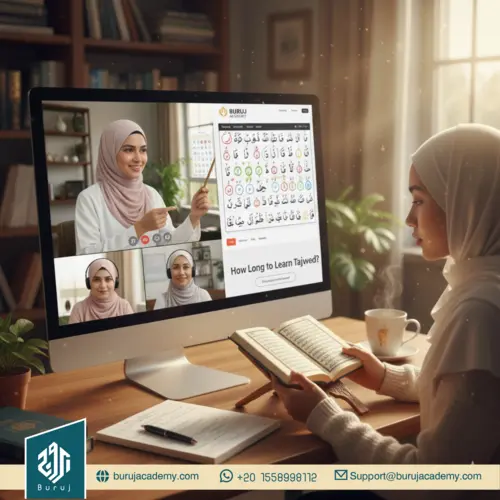Reading the Quran for the First Time
Reading the Quran for the first time is a profound and transformative experience. For many Muslims and those interested in Islam, approaching the Quran can evoke a mix of emotions—excitement, curiosity, reverence, and sometimes apprehension. The Quran is not just any book; it is the holy scripture of Islam, believed to be the literal word of God (Allah) revealed to the Prophet Muhammad (peace be upon him) over 1,400 years ago. Approaching it with an open heart and a basic understanding of its structure can make the journey more meaningful. This guide offers a few essential tips to help you begin your exploration of Islam’s holy book.
Understanding the Quran: More Than Just a Book
Before diving into how to read the Quran, it’s important to understand what makes it unique. Muslims consider the Quran the ultimate source of guidance, law, and spirituality. It covers various aspects of life—moral, legal, historical, and theological—and offers divine wisdom that remains relevant across centuries.
The Quran is written in classical Arabic, a language known for its rich beauty and eloquence. This can present a challenge to beginners, especially non-Arabic speakers, who may not be familiar with the language’s structure or vocabulary. However, with the right approach, anyone can begin to connect with the Quran’s message.
Contact Us For More Details
Emotional and Spiritual Aspects of Reading the Quran for the First Time
For many, the first time reading the Quran is a spiritual milestone. It may be accompanied by feelings of awe and a deep sense of connection to the divine. Many experience a sense of peace and reflection as they read its verses.
It’s normal to feel overwhelmed or unsure about how to start. The text can seem complex or intimidating, but the key is to approach it with respect, patience, and an open heart.
Understanding the Quran’s Structure 📖
The Quran isn’t a single narrative like a novel. Instead, it’s a collection of 114 chapters, or Surahs, of varying lengths. These chapters aren’t arranged chronologically or thematically but by a general rule of decreasing length, with the longest Surahs at the beginning and the shortest at the end. The exception is the very first chapter, Al-Fatihah (The Opening), which serves as a powerful introduction and a prayer.
You’ll also notice that the text is divided into parts (Juz’). There are 30 parts in total, making it convenient to read the entire Quran over a month, particularly during the fasting month of Ramadan. Knowing this structure can help you navigate the text and find specific sections.
Before You Begin: The Bismillah 🙏
Before starting any Surah (except for one), you will encounter the phrase “Bismillah Ar-Rahman Ar-Rahim,” which translates to “In the name of God, the Most Gracious, the Most Merciful.” This isn’t just a formality. It’s an invocation, a reminder to the reader to begin their journey with a sense of purpose and to seek guidance from a higher power. It sets a reverent tone and centers the reader’s mind on the divine source of the words they are about to read.
Reading and Interpretation 🧐
As a first-time reader, it’s important to choose a good translation. The original Quran is in Arabic, and while translations can’t perfectly capture the linguistic beauty and nuance, a good one will convey the meaning accurately. Look for translations that also include footnotes or commentary (Tafsir). These can be invaluable for explaining the context of a verse, the historical events it refers to, and the different interpretations scholars have offered over the centuries. A verse like, “And do not kill the soul which Allah has made sacred,” becomes much clearer when you understand the broader legal and ethical framework it’s part of.
You don’t have to read from cover to cover. Many readers start with the short, powerful Surahs at the end of the Quran, like Surah Al-Ikhlas or Surah An-Nas, which are easier to understand and memorize. Others prefer to read specific stories, such as the stories of the prophets, including Adam, Noah, Abraham, Moses, and Jesus, who are all revered figures in Islam.
The Quran’s Key Themes ✨
As you read, you’ll begin to notice recurring themes. The Quran repeatedly emphasizes God’s Oneness (Tawhid) and His compassion and mercy. It calls for justice, compassion, and charity towards others. It provides guidance on personal conduct, family life, and community relations. The Quran also contains powerful stories and parables that serve as moral lessons and reminders of the consequences of one’s actions. It speaks directly to humanity, encouraging reflection and a deeper connection to the divine.
How To Prepare Yourself Before Reading the Quran
- Purify Yourself:
Muslims often perform ablution (wudu) before touching or reading the Quran, showing respect for the sacred text. - Find A Quiet Place:
Choose a clean, quiet, and comfortable spot where you won’t be disturbed, allowing you to focus fully. - Set The Intention (Niyyah):
Make a sincere intention to read the Quran for gaining knowledge, spiritual growth, or connecting with God.
Practical Steps for Reading the Quran for Beginners
- Start Small and Simple:
Begin with shorter chapters like Surah Al-Fatiha (The Opening) or Surah Al-Ikhlas (The Purity), which are easier to memorize and understand. - Use an Authentic Translation:
If you don’t read Arabic, it’s essential to have a reliable translation in your language. This helps in grasping the meaning and context of the verses. - Listen to Recitations:
Listening to the Quran being recited by skilled Qaris (reciters) can enhance understanding and appreciation. It also helps with correct pronunciation and rhythm, especially when you start to read Arabic.
Learning Quranic Arabic and Tajweed
Since the Quran is in Arabic, learning some basic Quranic Arabic grammar and vocabulary can significantly improve your reading experience. Tajweed—rules of Quranic recitation—is another essential skill that governs how each letter and word should be pronounced.
Beginners are advised to study Tajweed with a qualified teacher or through reputable online courses. This helps avoid common mistakes and ensures that the Quran is read as it was revealed.
Overcoming Common Challenges
- Language Barrier:
Non-Arabic speakers might find the original text difficult. Using parallel translations and commentaries can aid comprehension. - Pronunciation:
Arabic letters have sounds not found in many other languages. Patience and practice are key to mastering these. - Consistency:
It’s easy to lose motivation if progress feels slow. Setting daily reading goals—even as little as a few verses a day—helps establish a habit.
Why Reading the Quran is a Lifelong Journey
Reading the Quran for the first time is only the start of a lifelong journey of reflection, study, and spiritual growth. Each reading reveals deeper layers of meaning. Many Muslims revisit chapters repeatedly over the years to gain new insights and strengthen their faith.
Helpful Resources for First-Time Readers
- Quran Apps: Various apps offer easy access to the Quran text alongside translations and audio recitations.
- Online Classes: Enrolling in Quran reading and Tajweed courses online can provide structure and expert guidance.
- Study Groups: Joining a Quran study group, either locally or online, provides support and shared learning.
Connect with Our Community
High-value education extends beyond the classroom. We provide free resources and a supportive community to help you on your journey. For free tips, student stories, and academy updates, follow us on Facebook, watch our educational lessons on YouTube, and join the conversation on Instagram.
Conclusion: Embrace the Journey with Patience and Faith
- Reading the Quran for the first time is an enriching, sacred experience that opens doors to spiritual wisdom and personal growth. Approach it with humility, sincerity, and patience. Whether you read a few verses or a whole chapter, the effort you invest will bear fruit in understanding, peace, and a closer connection to the Divine.
- Remember, the Quran invites reflection and contemplation. It speaks to the heart and mind alike, guiding believers through life’s challenges with divine wisdom.
- If you interested in learning how to read the Quran properly, including mastering Tajweed and Arabic grammar, consider seeking qualified tutors or engaging with online courses for beginners. The more effort and care you put into this first step, the more you will benefit from the Quran’s timeless guidance.
Ready to begin reading Quran for the first time?
Explore our Quran courses Page
Book your free trial class with one of our expert native Egyptian tutors at Buruj Academy today!





